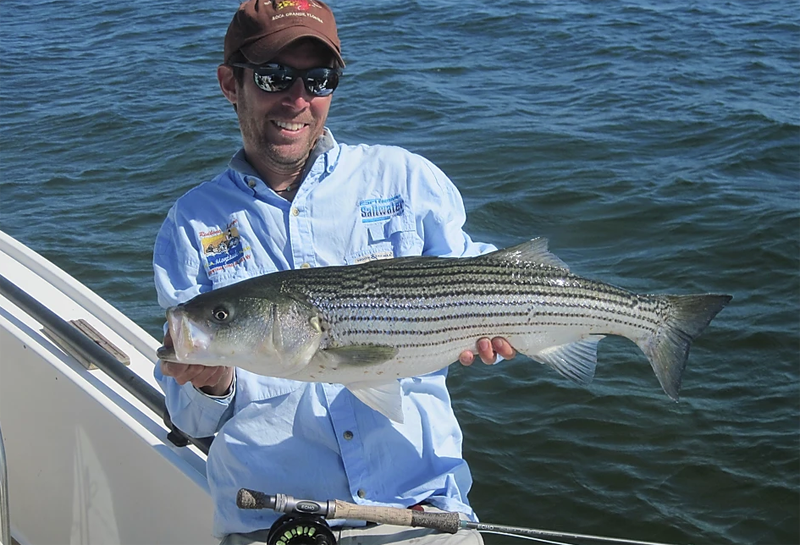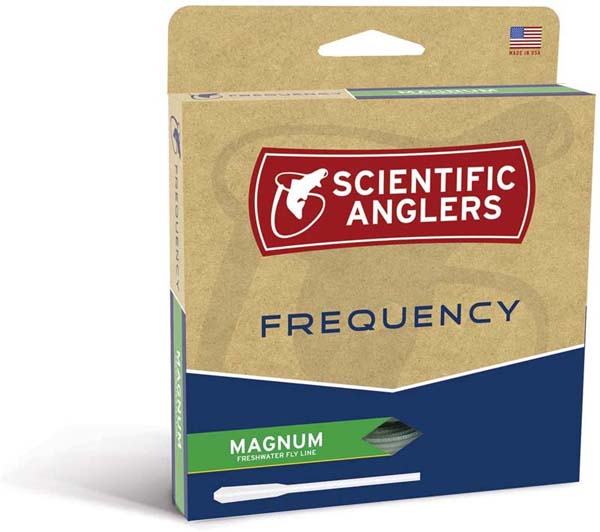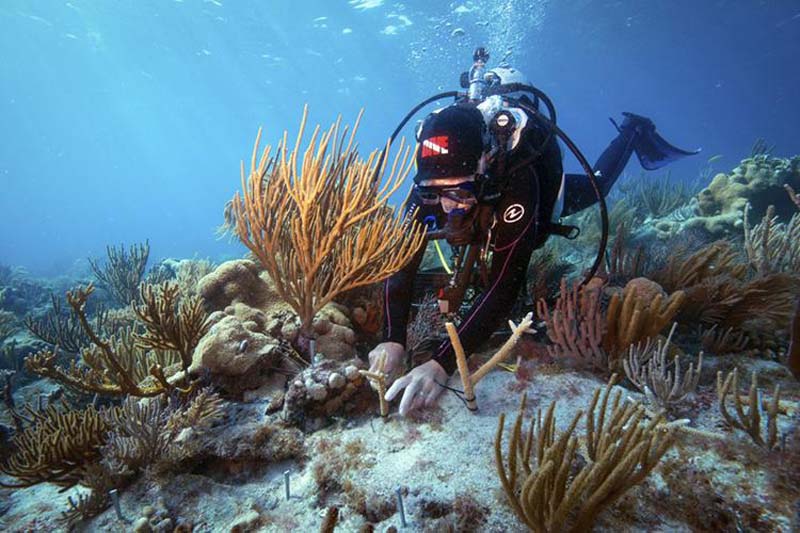
Yesterday’s Montauk striper – Capt. Andrew Derr.
DEC: Salmon River low water level closes fly-fishing section until ‘further notice’
Like never before, notifications similar to this headline are popping up with regularity next to some of the world’s freshwater angling gems.
We still have authorities in the highest places, denying we have a climate change issue that has been formidably influenced by human activity and yet to be checked. — Skip Clement

The Lowee Fly Fishing-Only Zone on the Salmon River. New York State Department of Environmental Conservation. Normally, the Lower Fly Fishing-Only Zone on the Salmon River is open from Sept. 15 through May 14 each year. Not this fall. The state DEC has announced that the popular, catch and release zone, which stretches from the County Route 52 bridge in Altmar upstream .25 mile to the marked boundary at Beaverdam Brook, will remain closed until “further notice.”
 No, it’s not found in children’s cereals, but it does glow in the dark
No, it’s not found in children’s cereals, but it does glow in the dark
The Frequency Magnum fly line can be summed up in six words: big flies, big fish, small price. Designed with an aggressive weight-forward head, the Magnum fly line is built for tossing large flies, turning over split shot, and blasting through the wind. In other words, this line is a bit of a bully—which is great if you’re targeting bass, big trout, and light saltwater game. It’s nice to have some muscle on your side.
- Turns over large dries, streamers, and split shot with ease
- For use in both fresh- and saltwater environments
- Overweighted design loads fast-action rods
- Braided multifilament core
$59.95
ECHO three & four piece RIVER GLASS travel designs
 Fiberglass: S-glass
Fiberglass: S-glass
- Action: Glass Med-Fast
- Tube: Fiberglass tube
- Guides: Chrome snake guides
- Reel Seat: Cork reel seat
- Warranty
All River Glass rods are hand-built, including the paint color. Due to the nature of painted translucent finishes, there may be color variances throughout the rod. Each rod is its own unique piece of art!

A diver attaches corals to the reef bottom. (Photo: Reef Resilience Network)
NOAA and Partners Advance Mission to Restore Florida Keys Coral Reefs
NOAA / Southeast / September 11, 2020
More than $1 million in NOAA funding will support research, development, capacity-building, and restoration for the innovative Mission: Iconic Reefs effort
More than $1 million in recent NOAA funding is contributing to the research and development, site preparation, and capacity-building to support the long-term work of Mission: Iconic Reefs. The funding will also support in-water restoration at multiple sites. In December 2019, NOAA and partners launched an unprecedented approach to restore seven ecologically and culturally significant coral reef sites in Florida Keys National Marine Sanctuary. Since then, we’ve been working together to build the foundation for this ambitious effort.
Since the 1970s, healthy coral cover in the Florida Keys has declined by more than 90 percent. Ship groundings, pollution, overfishing, hurricanes, disease, and warming ocean temperatures all impact the reefs and compromise coral health. Losing coral reefs could result in cascading effects to the region’s economy and culture, which are firmly rooted in the local marine ecosystem.





